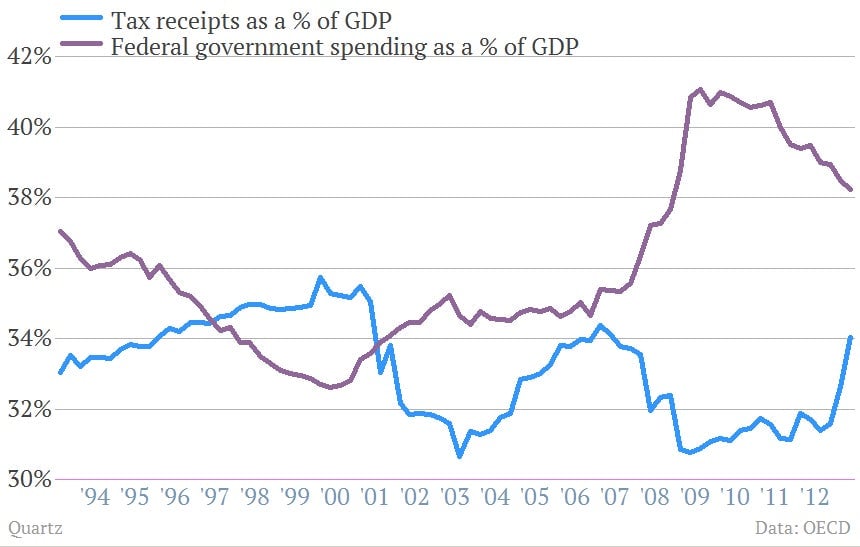The US is cutting its deficit faster than it ever has before
The latest US budget statement is due at 2 p.m. ET and is expected to show that the US deficit continued to decline in July, falling to a consensus -$90.5 billion. That’s still in the red, to be sure. But it’s worth noting just how sharply US deficits have been declining. Check out this chart from economists over at Barclays.


The latest US budget statement is due at 2 p.m. ET and is expected to show that the US deficit continued to decline in July, falling to a consensus -$90.5 billion. That’s still in the red, to be sure. But it’s worth noting just how sharply US deficits have been declining. Check out this chart from economists over at Barclays.

How has the US done it? No giant mystery here: Spending has been falling and government tax revenue has been rising.

Ok, but why, exactly?
Barclays economists say tax receipts are rising largely because of better individual tax revenue. And those are improving for a few reasons. Worker incomes are up a bit thanks to improvements in the job market. Taxes on capital gains from the buoyant US stock market are also helping. And then there’s the fact that tax rates rose thanks to the budget deal cobbled together with Congress late last year. (paywall)
Meanwhile, on the other side of the ledger, spending has been falling thanks to the unwinding of wars in Afghanistan and Iraq and steep defense cuts related to the so-called sequester. Elsewhere, lower unemployment-related spending on things like unemployment insurance and food assistance have cut spending. Big profits from government owned mortgage giants Fannie Mae and Freddie Mac—thanks to improvements in the housing market—have also lent a hand. In fact, the shaping up of US budgets has been a work in progress since back in 2010, Quartz’ Tim Fernholz has written.
But the sharp decline in the US deficit is enough to make some Keynesian-minded economy watchers wonder if deficits might actually be falling too fast. After all, unemployment remains quite high by historical standards and government deficit spending is an important way to offset weak conditions in the private sector.
With another round of fiscal chicken seeming to be picking up steam, President Obama would do well to note that US presidents—take President Reagan, for example—are usually remembered more for the state of the economy under their watch, rather than for the size of the deficits they left behind.